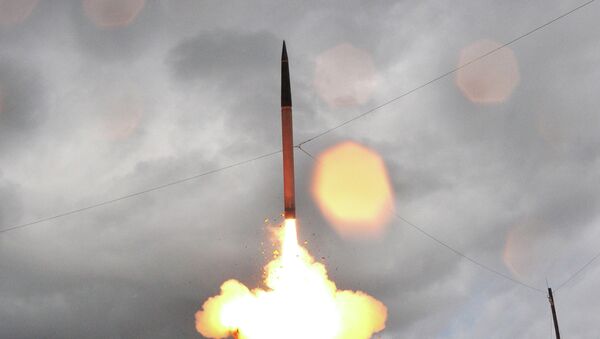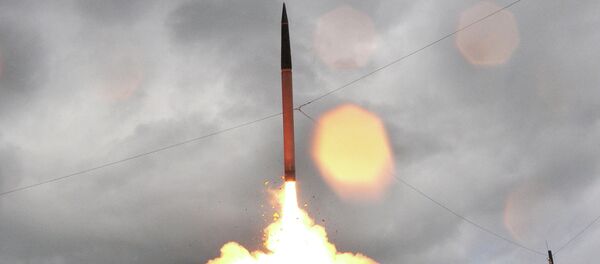Dr Kevin Gray, reader in International Relations at the University of Sussex, detailed to Radio Sputnik's Matthew Ayton what he believes is stirring up international dispute. First, he claims, there is no proof that the extremely expensive THAAD is 100-percent effective, and is capable of blocking the many different forms of missiles and artillery that North Korea could use.
But what's more important, Gray stressed, is that although the northern state's nuclear program may have developed quickly over the recent years, it is hard to imagine that Pyongyang would want to launch an attack.
"In many ways North Korea is a very rational state and doesn't really have any wider ideological goals beyond simply wanting to preserve their political and economic system, so it is very difficult to believe [it] would want to…commit suicide by attacking the United States or its allies," he claimed.
"[Missile defense systems] bring with them the danger of producing a new kind of arms race and…cementing a kind of new Cold War in East Asia," he said.
Dr. Charles Armstrong, Director of the Center for Korean Research at Columbia University, New York, echoed Gray's remarks by saying that nobody would want missile defenses "in their backyard."
"THAAD anti-missile defense has created outrage and fierce opposition in China. The Chinese government has argued that this is really directed not against North Korea but against China," Armstrong said. "Is the placing of missile defenses in South Korea worth antagonizing China and leading to greater China-US conflict?"
He added that there is "a lot of opposition" against THAAD among South Koreans who believe that if the US establishes antimissile defenses in their country, they will themselves become a likely target of attacks by the DPRK, putting South Korea at greater risk.




